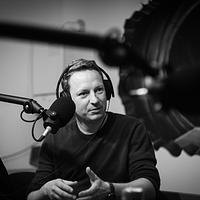After one year of war, Ukraine as a country is torn between resilience and devastation. But what did the war do to Ukrainian students at Saxion? How are they doing? How did one year of war change them? And (how) do they keep hope? Three portraits. Second is Anastasiia Orlovska, third-year Creative Media & Game Technologies (CMGT). "All the goals I had before the war now seem impossible or pointless."
Anastasiia Orlovska is ill. For the fourth time in a month. It's probably just a cold, like the previous times, but she also sees a pattern. "My immune system seems worn out, because of the constant stress," she says.
That stress has been there since the war started, but is even greater at the moment. She sees this not only in herself, but also in her Ukrainian peers. "We are all on edge. The feeling is that something very serious is about to happen, also because the war is reaching its one-year anniversary."
Bleak and lifeless
What would that be? She doesn't know, but she worries, especially about her family. "Maybe a massive attack. Or a tipping point in the war. Probably not something good."
Last year she saw her family, she visited them near Kyiv. That was a surreal experience. "Everything seemed more or less the same at that time, but people were grey and lifeless. From the constant stress."
How she herself has changed after a year of war? "A lot." All the goals and dreams she had before the war now became meaningless, or impossible. After graduation, she wanted to start a business there. That is no longer possible now. "All my wishes and dreams are solely about going back there and helping my country. I want to start something to help my country."
A year of war has made her more stress-resistant. Like in a pressure cooker, it gave her experience; she spent two months helping collect supplies for emergency relief, helped at the benefit instigated by SaxNow, met the Ukrainian ambassador to the Netherlands. "I gained a lot of skills and friends. Under pressure, I learned a lot."
Endured
And she became a better person than she was, she is convinced. "I was not necessarily selfish before the time, but now I am much more selfless. I have felt what it is like when you get help when you need it, so I want to start giving that now, not only to Ukrainians, but also to other people, who need help."
Whether she still has hope? "Yes." But she keeps it optimistically realistic, as she calls it. "I accept the new reality, but I still believe in change. That this will come to an end."
She knows what the Ukrainian people are capable of. "How much strength and courage there is, I have seen that. And I can tell you; that is contagious. Just like the unity, which has brought us this. I believe: we can get through this."
